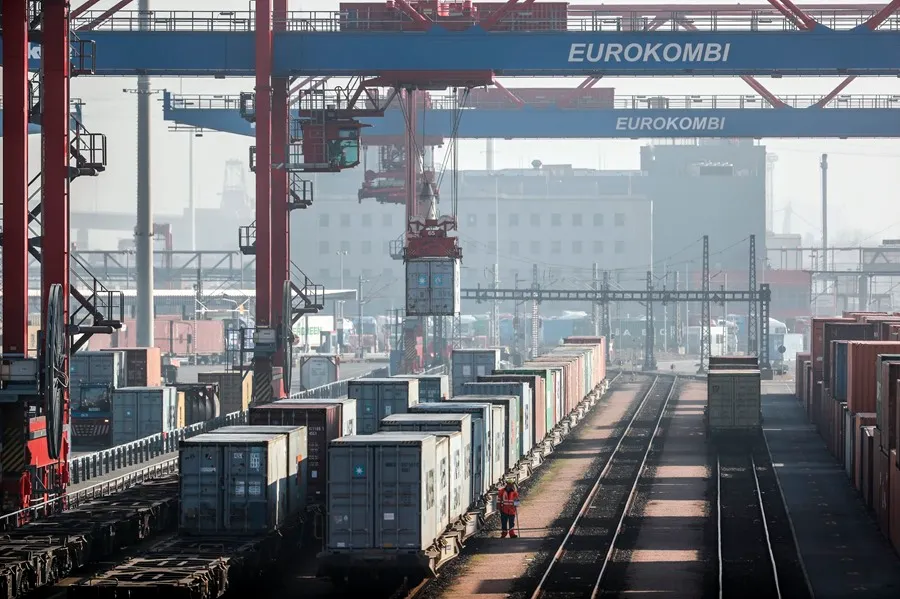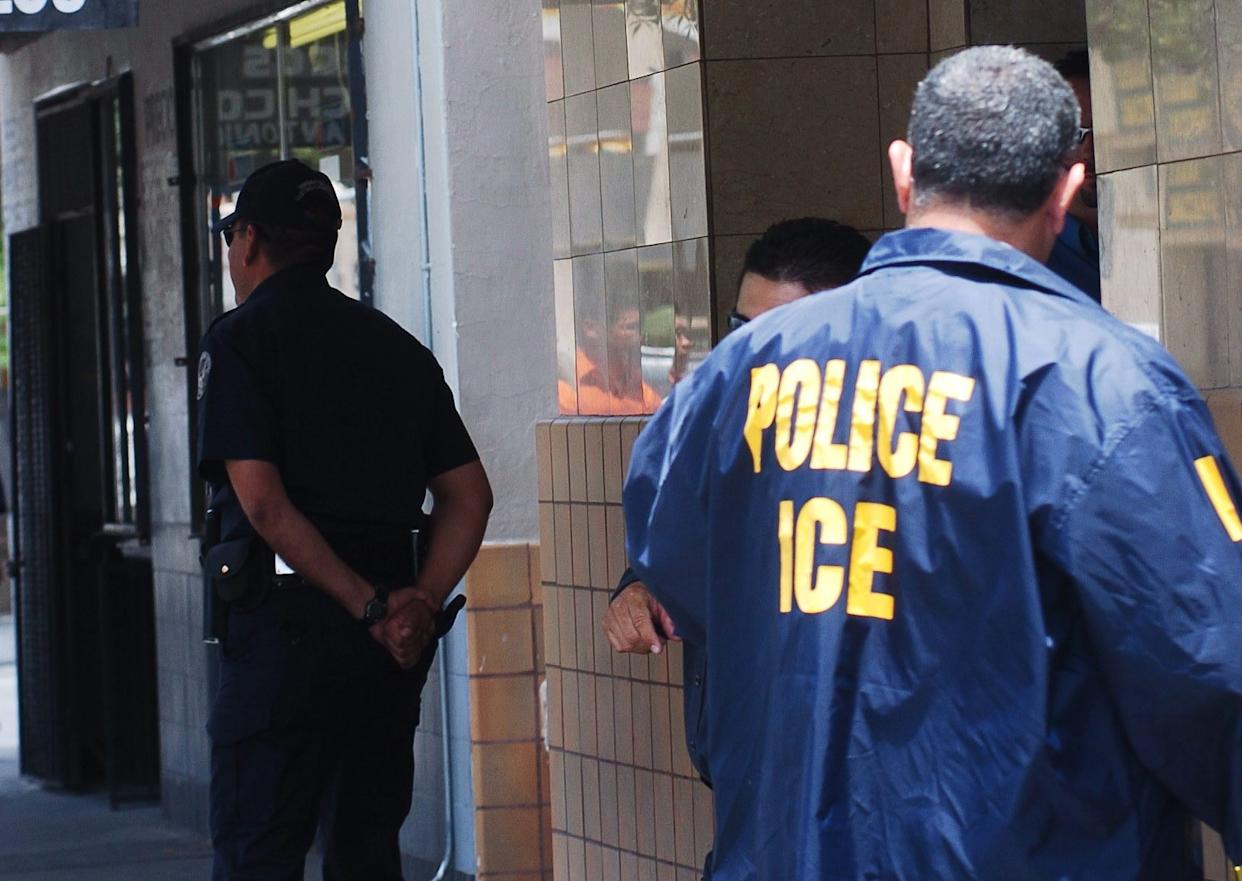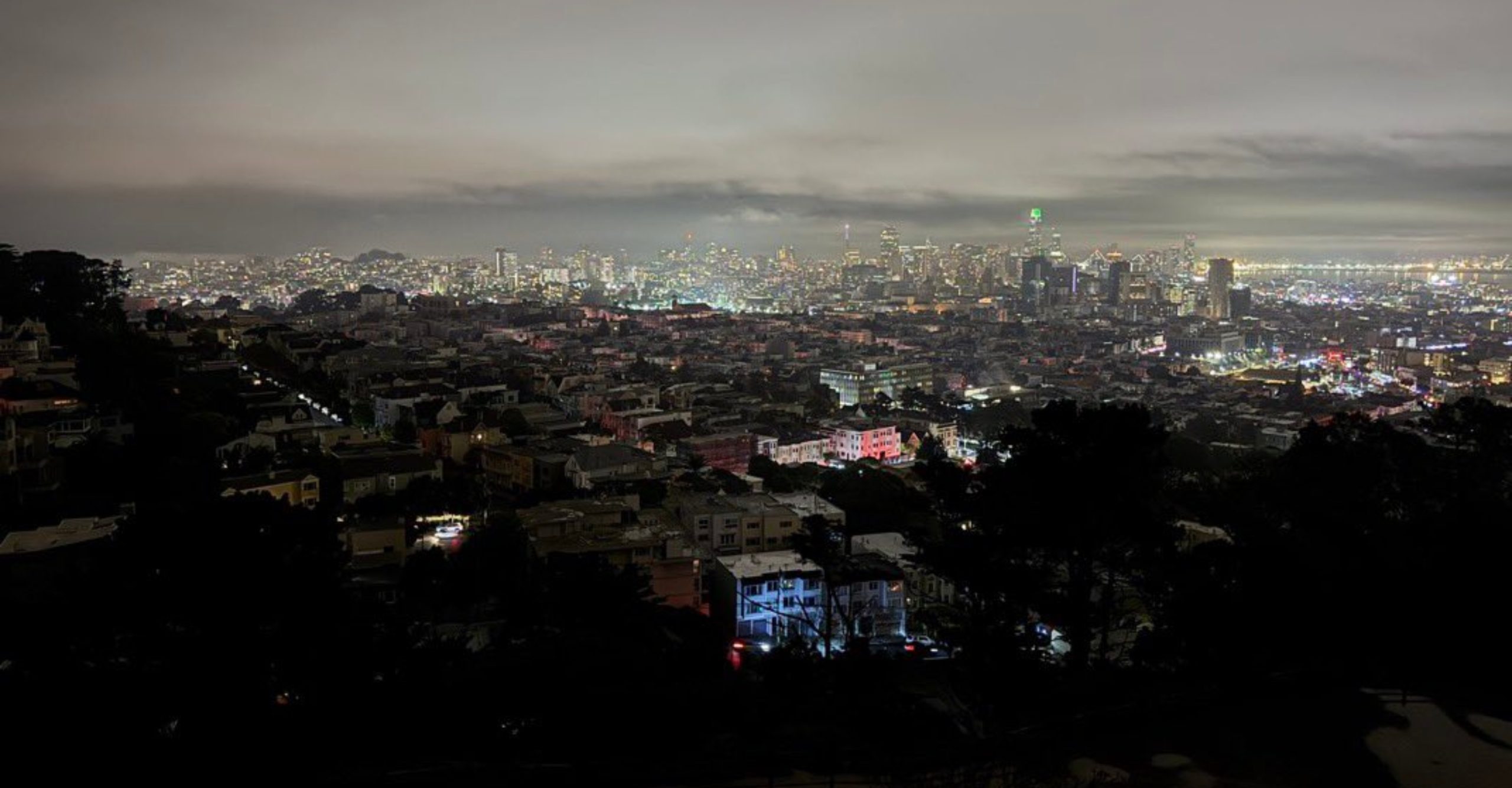International
Trump threatens to impose tariffs on governments that apply digital fees to US companies

The President of the United States, Donald Trump, signed an executive order on Friday that threatens to impose tariffs on foreign governments that apply digital fees to US companies, including Spain, the United Kingdom and France.
The order states that “foreign governments have exercised a growing extraterritorial authority over US companies, particularly in the technology sector,” and directly cites the taxes on digital services that “several business partners” apply since 2019.
According to the text, the Trump Administration will impose tariffs on those governments that use taxes or regulations that are “discriminatory, disproportionate or designed to transfer significant funds or intellectual property from US companies to that government or its chosen domestic entities.”
Trump delegates to the US Trade Representative the possibility of “renewing investigations” on the so-called technology fees of Spain, the United Kingdom, France, Italy, Austria and Turkey, imposed in the first term of the Republican, and if so, “take all appropriate actions”, which would include the imposition of tariffs.
“US companies will no longer sustain failed foreign economies through fines and extortionational taxes,” says the White House document, which provides for a “process” for them to “report” these “disproportionate” measures to the Commercial Representative.
He also instructs him to investigate together with the Secretaries of the Treasury and Commerce whether in the European Union or the United Kingdom the use of products or services of US companies is “required or encouraged” to “undermine freedom of expression”, political activity or, “otherwise, moderate content”.
It also suggests to the Representative, among other things, to hold “a panel” with its partners of the T-MEC (Canada and Mexico) on the tax on digital services in Canada, and identify ways to achieve a “permanent moratorium on customs duties on electronic transmissions”.
The order does not mention any specific company, but mainly affects large technology companies such as Apple, Google (subsidiary of Alphabet), Meta and Amazon, which have precisely starred in a resounded approach to President Trump since he won the elections in November.
In his first term (2017-2021), Trump ordered to investigate the digital fees to his companies abroad and threatened to apply tariffs to the six countries indicated today; taxes were imposed in the government of his successor, the Democrat Joe Biden, and subsequently suspended.
Trump signed another executive order aimed at restricting access to US technology, especially in the field of artificial intelligence, what he calls “foreign adversaries”, including Cuba, Venezuela, Iran, Russia and China.
The executive order does not specify in detail what measures will be taken to restrict the access of these “foreign adversaries” to US technology.
Under the label of “foreign adversaries”, the order identifies China, Hong Kong, Macau, Cuba, Iran, North Korea, Russia and the “regime of Venezuelan politician Nicolás Maduro”, according to the text.
Trump justifies his decision with the argument that “economic security is national security” and maintains that the country must protect its sensitive infrastructures and technologies, from artificial intelligence to semiconductors and advances in biotechnology.
The executive order focuses especially on China, pointing out that companies linked to Beijing have used investments in the US to access key technologies and that the Chinese government is taking advantage of US technology to modernize its military apparatus.
Since his return to the White House on January 20, Trump has announced several restrictions on trade with the aim of balancing the trade balance and pressuring countries such as Mexico and Canada to make concessions on immigration and efforts against drug trafficking.
It has imposed a 10% tariff on China, which is in addition to the rates already applied during its first term (2017-2021).
Trump’s new restrictions come after his predecessor, Joe Biden, took steps to limit exports of semiconductors and artificial intelligence technology to China, which led Beijing to respond with export controls on graphite, a key material for electric vehicle batteries.
International
Trump Orders Construction of New ‘Golden Fleet’ to Revitalize U.S. Naval Superiority

President Donald Trump issued an executive order this Monday for the immediate construction of two new warships that will bear his name. These vessels will be the pioneers of what he described as the “Golden Fleet,” a future generation of “Trump-class” battleships that he claimed would be “100 times more powerful” than those currently in service.
The announcement took place at his private residence in Mar-a-Lago, Florida. The President indicated that following the initial two ships, the administration aims to commission up to 25 additional vessels. He is scheduled to meet with Florida-based contractors next week to expedite production, criticizing existing defense firms for failing to deliver results efficiently.
This naval expansion is a cornerstone of Trump’s goal to revitalized the American shipbuilding industry and address the strategic gap between the U.S. and competitors like China.
The move comes amid heightened geopolitical tension. Just last week, Trump ordered the seizure of all sanctioned tankers involved with Venezuela’s “ghost fleet” to cripple the country’s crude oil industry. Since December 10, the U.S. military—deployed in the Caribbean under the guise of counter-narcotics operations—has already detained two tankers linked to Venezuelan oil transport.
International
U.S. Judge Blocks ICE from Re-detaining Salvadoran Erroneously Deported Under Trump Administration

A U.S. federal judge ruled this Monday, December 22, that Immigration and Customs Enforcement (ICE) is prohibited from re-detaining Salvadoran national Kilmar Ábrego García, who was erroneously deported to El Salvador earlier this year during the administration of President Donald Trump.
During a hearing in Maryland, U.S. District Judge Paula Xinis ruled that Ábrego García must remain free on bail through the Christmas holidays, concluding that his initial detention lacked a legal basis. The ruling follows a request from his legal team for a temporary restraining order to prevent ICE from carrying out a new arrest.
Earlier this month, on December 11, Judge Xinis ordered his release from a Pennsylvania migrant detention center after determining that the government had detained him without a formal deportation order. In 2019, an immigration judge had already ruled that Ábrego could not be returned to El Salvador because his life was in danger.
Despite that protection, Ábrego García was deported in March 2025 following a raid by the Trump administration. Officials argued at the time that he was a gang member, and he was sent directly to the Center for the Confinement of Terrorism (CECOT) in El Salvador. In June, he was returned to the United States to face a new trial for alleged human smuggling—a charge he denies.
On Monday, Judge Xinis also temporarily invalidated a new deportation order issued by an immigration judge following Ábrego’s recent release, granting him legal protection through the coming weeks. His trial is scheduled to begin in Tennessee in January 2026.
International
Fire at substation triggers major blackout in San Francisco

The U.S. city of San Francisco was plunged into darkness Saturday night after a power outage left about 130,000 customers without electricity, although the utility company said service was restored to most users within hours.
Pacific Gas & Electric Company (PG&E) said in a statement posted on X that nearly 90,000 homes had their power restored by 9:00 p.m. local time (05:00 GMT on Sunday), while the remaining 40,000 customers were expected to have service restored overnight.
Large areas of the city, a major technology hub with a population of around 800,000, were affected by the blackout, which disrupted public transportation and left traffic lights out of service during the busy weekend before Christmas, a crucial period for retail businesses.
“I know it’s been a difficult day,” San Francisco Mayor Daniel Lurie said in a video posted on social media from the city’s emergency operations center. “There has been progress, but for those still without power, we want to make sure they are safe and checking in on their neighbors,” he added.
Lurie said police officers and firefighters advised residents to stay home as much as possible. He also noted that officers and traffic inspectors were deployed to manage intersections where traffic lights were not functioning.
The mayor confirmed that the outage was caused by a fire at an electrical substation. Parts of the city were also covered in fog, further complicating conditions during the incident.
As a result of the blackout, many businesses were forced to close despite it being the weekend before Christmas. The sudden drop in shopper traffic ahead of the holiday is “devastating” for retailers, the manager of home goods store Black & Gold told the San Francisco Chronicle.
-

 International4 days ago
International4 days agoShakira’s El Salvador concerts sell out in hours, fans demand more dates
-

 International3 days ago
International3 days agoPentagon confirms Trump pick for SouthCom as U.S. military pressure grows
-

 International1 day ago
International1 day agoU.S. Judge Blocks ICE from Re-detaining Salvadoran Erroneously Deported Under Trump Administration
-

 International4 days ago
International4 days agoTrump moves to reclassify marijuana as less dangerous substance
-

 International2 days ago
International2 days agoCristina Kirchner recovering after appendicitis surgery in Buenos Aires
-

 International3 days ago
International3 days agoArgentina detects first local cases of Influenza A (H3N2) Subclade K
-

 International2 days ago
International2 days agoFire at substation triggers major blackout in San Francisco
-

 International1 day ago
International1 day agoTrump Orders Construction of New ‘Golden Fleet’ to Revitalize U.S. Naval Superiority




























